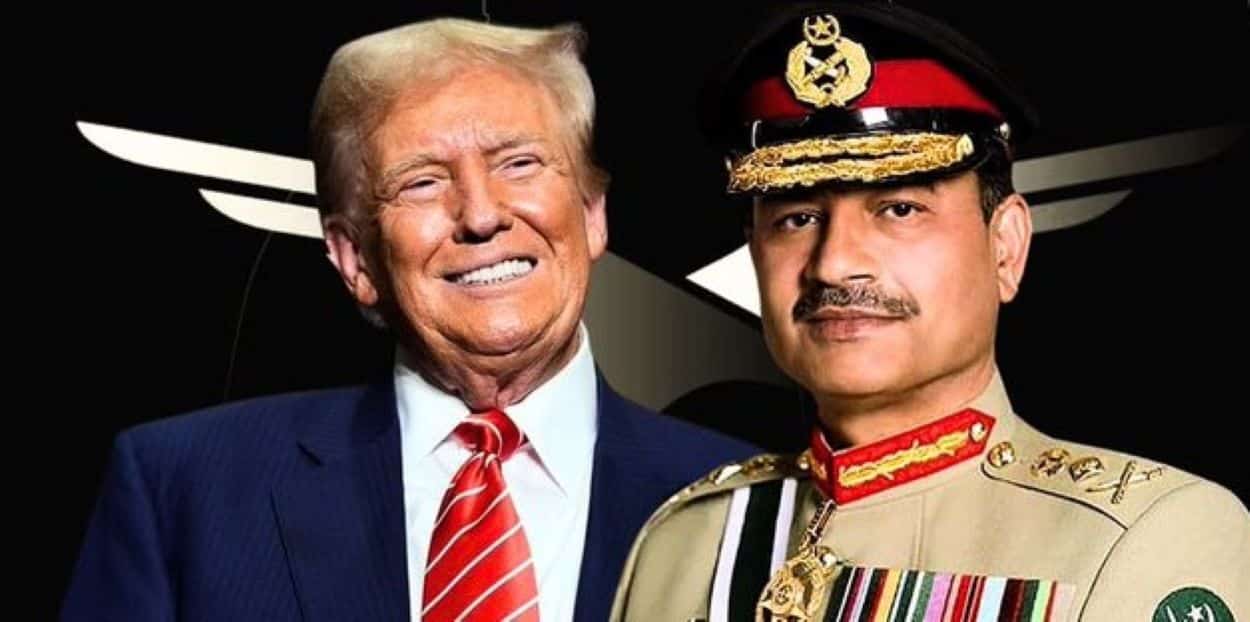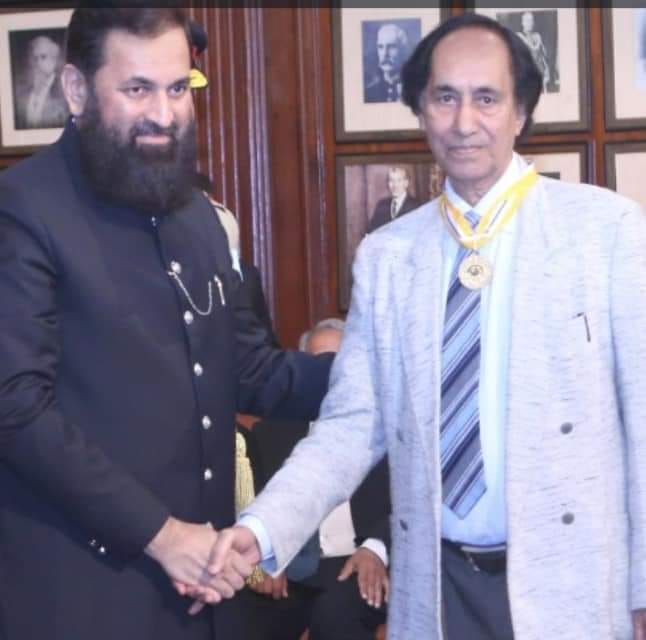Trump-Munir Meeting: A Strategic Recalibration in US-Pakistan Relations
Editorial

In a high-stakes moment that may reshape the contours of South Asian and Middle Eastern geopolitics, Pakistan’s Chief of Army Staff, Field Marshal Asim Munir, held a rare and strategically consequential meeting with US President Donald Trump at the White House. Amid escalating tensions in the Middle East and following a recently brokered ceasefire between India and Pakistan, this one-on-one lunch marked a profound shift in Washington’s approach to Islamabad—one guided not by reaction, but by recalibration. President Trump, in his characteristically candid style, called it an “honour” to meet the Pakistani army chief and explicitly thanked him for Pakistan’s role in ending the five-day conflict with India. This acknowledgment is more than diplomatic courtesy; it places the Pakistan Army—not just its civilian government—at the heart of regional peacemaking. For years, Pakistan has been viewed primarily as a recipient of global influence. Now, it is being repositioned as a proactive contributor to conflict resolution, a shift that could redefine its standing in international affairs.
What makes this meeting truly pivotal is its broader strategic context: Iran. With hostilities between Iran and Israel on the rise, the United States is exploring options for engagement. Trump hinted at this possibility, stating, “Iran wants to meet and we may do that,” though he left open whether this would involve formal negotiations or a one-off exchange. His remark—“Well, they [Pakistan] know Iran. Better than most”—underscores Pakistan’s unique position. Sharing a long border and complex historical ties with Iran, Pakistan is one of the few Muslim-majority nations capable of acting as a credible bridge between Tehran and Washington. Field Marshal Munir’s presence at the White House suggests an unspoken role for Pakistan: not just a mediator, but potentially a silent guarantor of backchannel diplomacy.
This diplomatic overture builds on a slow but deliberate revival of military-to-military ties between Pakistan and the United States. Since Munir’s appointment in November 2022, he has met US CENTCOM Commander General Michael Kurilla at least four times, signaling a mutual interest in operational synergy and regional security. From counterterrorism efforts in Khyber Pakhtunkhwa to naval exercises in the Arabian Sea, this cooperation has evolved beyond its Afghanistan-centric past. The Trump-Munir meeting gives this relationship a political and strategic face, laying the groundwork for deeper alignment—perhaps through collaborative intelligence sharing, regional de-escalation mechanisms, and coordinated counterterrorism efforts.
This meeting stands out as historic for another reason: it is the first clear acknowledgment by a major US political figure of Pakistan’s role in ending the recent war with India. Trump’s comments lend weight to the idea that Washington is ready to see Islamabad not just as a partner in war, but as a stakeholder in peace. This shift could encourage a more balanced US approach to South Asia, one that recognizes Pakistan’s contributions alongside India’s regional influence.
The meeting has also garnered bipartisan support within Pakistan. PPP Chairman and former Foreign Minister Bilawal Bhutto Zardari called it “a positive step in Pakistan-US relations,” praising Trump’s role in mediating the ceasefire. Bhutto’s remarks reflect a rare consensus on the value of military diplomacy. He added, “Pakistan neither seeks conflict nor are we desperate for dialogue. But we do recognise that peace is in both nations’ interests.” By highlighting India’s intransigence—on Kashmir, water disputes, and terrorism narratives—Bhutto subtly urged the US to prioritize honesty over mere diplomacy in its regional dealings.
Field Marshal Munir’s meeting with the Pakistani diaspora in Washington further underscores a strategic shift. By praising their contributions to Pakistan’s economy and global reputation, the army chief signaled that the military is not operating in isolation from civil society. This engagement highlights Pakistan’s internal cohesion as a strength, not a liability, and projects a positive image internationally.
The Trump-Munir meeting may be remembered as the moment Pakistan transitioned from a reactive regional player to a proactive strategic partner. By placing the army chief at the center of American diplomacy on both India and Iran, the United States has recalibrated its expectations—and its respect—for Pakistan. For Islamabad, this is not just an opportunity, but a responsibility. In a world shadowed by instability, states that can offer calm counsel and credible influence are rare. Under Field Marshal Munir, Pakistan is stepping into that role. And the world, it seems, is finally beginning to notice.


No comments yet.